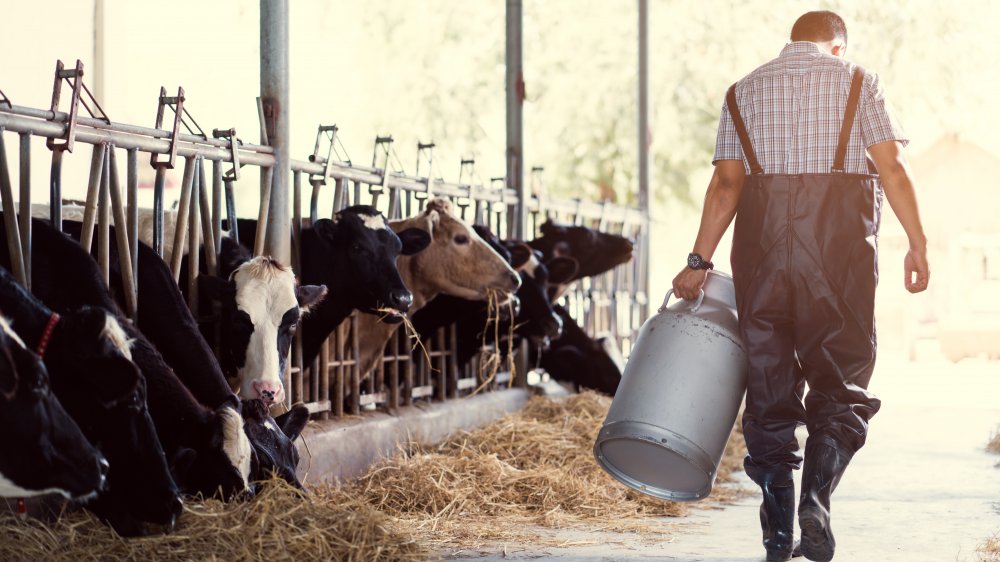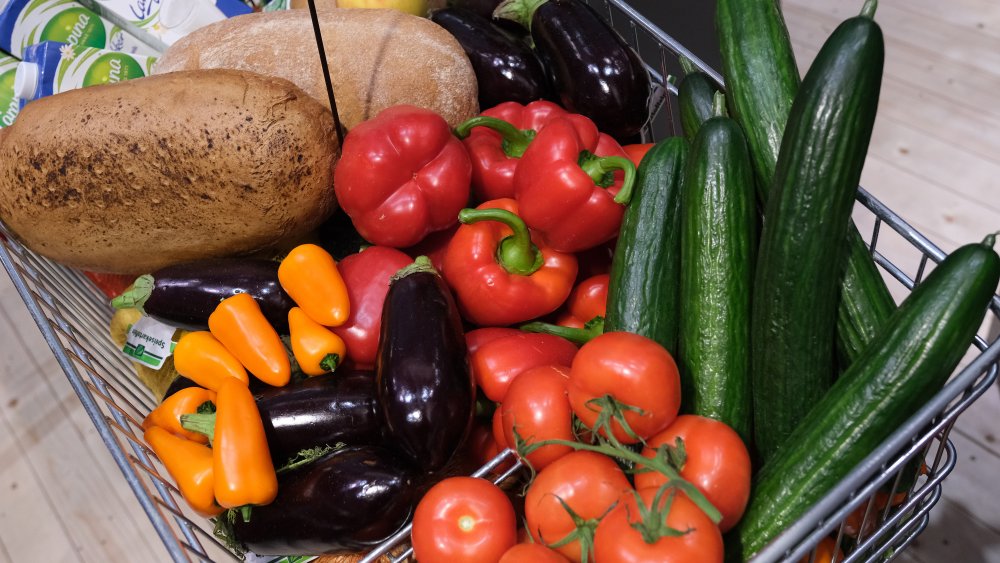The Real Reason Farmers Are Throwing Away So Much Food And Dairy
Getting food from "farm to table" isn't as straightforward as the catchphrase might sound. Society's response the COVID-19 pandemic has shown that everything depends on which table you're talking about.
With residents in almost every U.S. state under orders to stay home to prevent the spread of the virus that causes COVID-19, big farm customers such as hotels, restaurants, and schools are shut down or severely curtailed in their operations. Rather than diverting their produce to grocery stores and online delivery services, which have seen a spike in demand, farmers are throwing the food away.
Examples of massive waste were reported in The New York Times. Dairy farmers have been dumping up to 3.7 million gallons of milk every day. A single chicken farm is destroying 750,000 eggs per week. This seems especially unfortunate, given the increased pressure on food banks to help a growing number of people who are losing their jobs as a result of COVID-19 (via TODAY).
The farmers can't be blamed for dumping their milk or plowing ripe vegetables back into the soil. The food-supply chain simply isn't nimble enough to pivot quickly from school cafeterias and restaurant dining rooms to individual homes. Some farms have built their business around institutional customers and aren't equipped to package food for grocers — for example, milk that had been put in those little half-pint cartons for schools would need to be packaged in gallon jugs.
Will the pandemic cause a shift to local foods?
People's eating habits have changed, too. We eat more vegetables at restaurants than at home, which is one of the reasons an Idaho farmer had to 1 million pounds of ripe onions, according to The New York Times report.
Farmers are doing what they can to donate what they can't sell. But food banks offer more canned and processed foods than fresh produce, which is expensive to transport. And farmers, it is fair to say, aren't in a position to foot the bill for a refrigerated truck that could deliver their produce to a food bank.
Experts from the United Nations warn that disruptions to the food supply could grow worse, for a number of reasons. Some fishing vessels aren't sailing because the virus can spread easily on board. Migrant laborers might stay away to avoid contracting COVID-19. Some meat processors have already shut down indefinitely.
While growers, transporters, and stores muddle through the pandemic in the short term, any lasting solution to the food-supply problem will take time. Kathleen Finlay, the director of Glynwood, a food-and-farm nonprofit in New York, wants us to transition to locally sourced foods (via The Boston Globe). "I wish it didn't take a pandemic for people to realize that a homogeneous, centralized food system is a weak one," she wrote.

